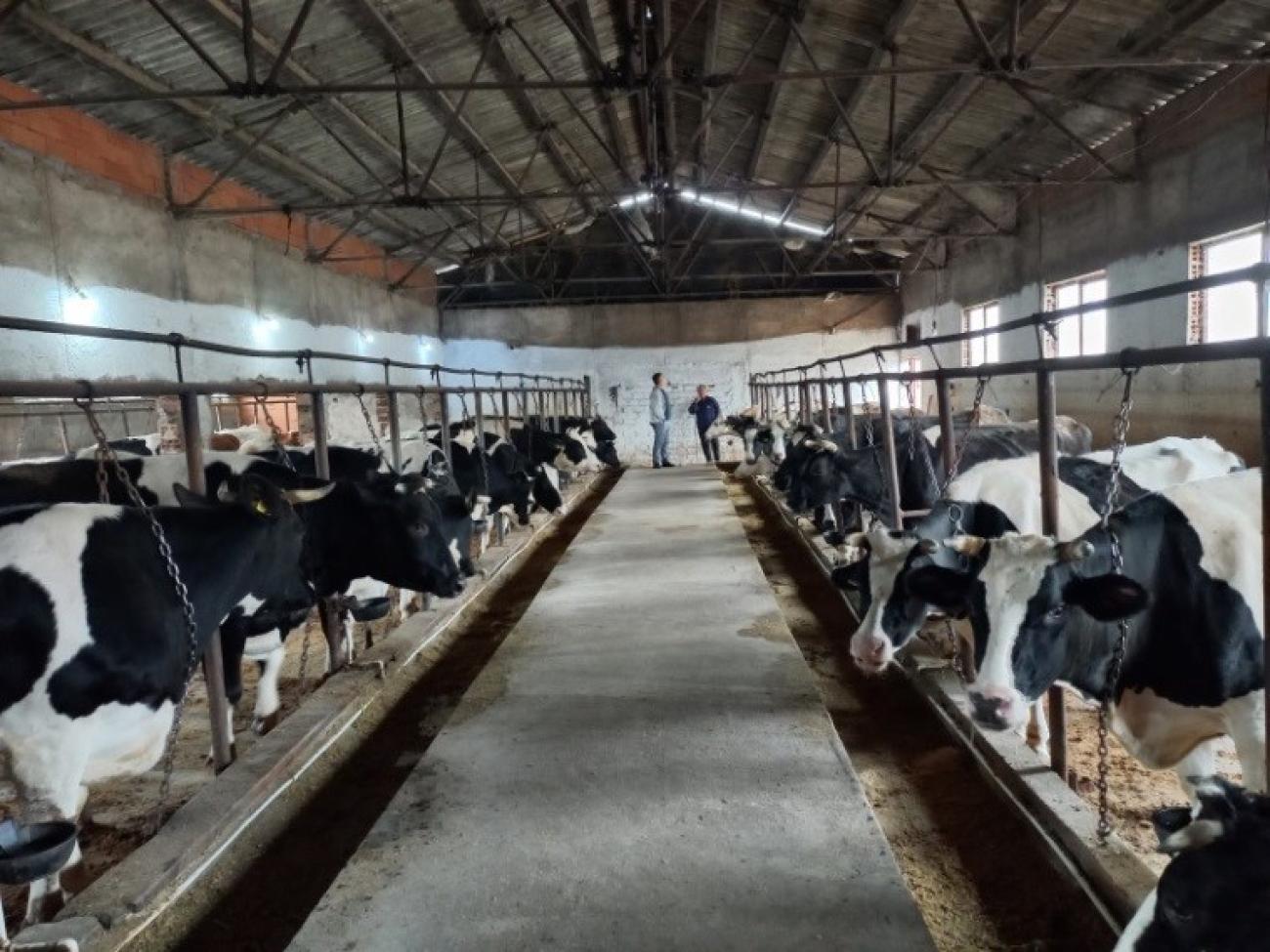20 December 2021, Skopje, North Macedonia. Despite that North Macedonia has favorable geographic and climate conditions for beef meat production, the country is a net importer of live cattle, fresh and frozen beef and beef products, with the domestic production not being able to satisfy domestic demand, facing fierce competition from imports.
Dominated by small and medium cattle breeders, the Macedonian cattle sub-sector is characterized by inadequate animal husbandry practices, poor breed composition, absence of adequate breeding program and reproduction practices, dependence on import of expensive animal feed, underused pastures, poor links and lack of cooperation among the different actors in the value chain. This limits the sub-sector productivity, competitiveness and prospects for sustainable market-oriented domestic production.
To address these issues, FAO has worked with the Ministry of Agriculture, Forestry and Water Economy to identify the major issues affecting the cattle industry, specifically the cattle value chain, and to provide recommendations for establishing a sound value chain system through a multisector approach. The results of this work were presented at today’s workshop in Skopje, convening representatives from Government, academia, cattle sector value chain actors – farmers, producers, processors and retailers.
In addressing at the workshop opening, Besir Jashari, State Adviser for Agriculture, Livestock and Fisheries at the Ministry of Agriculture, Forestry and Water Economy of North Macedonia, emphasized that the Macedonian Government recognizes the importance of sustainable domestic cattle sub-sector for the economy, livelihoods, human and animal health and the environment and in this context will support value chain development investments in the domestic cattle sub-sector. ‘’This project is therefore an important baseline for systematic cattle sub-sector development’’- he concluded.
In opening the workshop, Nabil Gangi, FAO Deputy Regional Representative, stressed that FAO is pleased to support the country efforts to strengthen the domestic cattle production, which plays a significant role in the domestic livestock sector, starting from a detailed analysis of the current situation, the major policy, institutional and value chain issues affecting the cattle industry. ‘’We strongly believe that the findings of our comprehensive analysis will serve as a basis for strengthening the national policy and investment environment and for creating conditions for inclusive, efficient, modern and competitive cattle sub-sector which meets food quality and safety standards, encourages animal welfare and environmental sustainability’’ - he added.
To support the national priorities in the Strategy on Agriculture and Rural Development of North Macedonia 2021-2027 on strengthening the genetic potential of breeding animals, FAO also evaluated the existing artificial insemination programme in the country and provided recommendations on improving the genetic material and diversification of cattle breeds. Together with the Faculty of Veterinary Medicine, possibilities for further improvements in the cattle value chain, including potential investments and sources of funding will be explored in the forthcoming period.
As stated by FAO Livestock specialist Tibor Szucs, “the importance of these analyses is that they provide practical and feasible recommendations to the Government to improve the cattle value chain including the breeding program.’’ He confirmed FAO’s readiness to walk hand-in-hand with national experts to implement the recommendations”.
Looking to the future, Nabil Gangi expressed hope for continued collaboration.
‘’Building on the current efforts, FAO stands ready to collaborate with the Ministry of Agriculture, Forestry and Water Economy, the Faculty of Veterinary Medicine and other national and international partners in the next phases of enabling large-scale investments for transforming and modernizing the domestic cattle sub-sector that contributes to poverty reduction and improved nutrition for the population’’ – he added.






